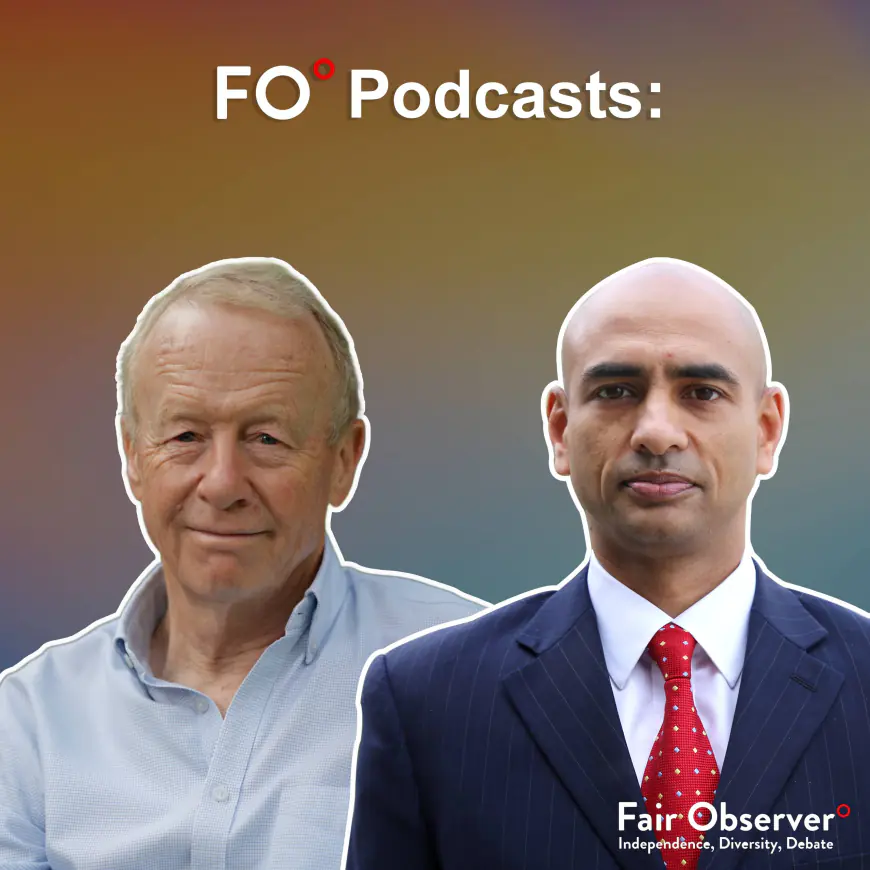Making Sense of Rising Tensions in the Horn of Africa
The Horn of Africa is experiencing rising tensions, with complex dynamics involving multiple regional countries. This strategic area, jutting out towards the Middle East, has been a focal point of geopolitical interest for centuries. Recent developments have brought attention to the western side of the Red Sea, where a meeting between the presidents of Eritrea,… Continue reading Making Sense of Rising Tensions in the Horn of Africa The post Making Sense of Rising Tensions in the Horn of Africa appeared first on Fair Observer.

The Horn of Africa is experiencing rising tensions, with complex dynamics involving multiple regional countries. This strategic area, jutting out towards the Middle East, has been a focal point of geopolitical interest for centuries. Recent developments have brought attention to the western side of the Red Sea, where a meeting between the presidents of Eritrea, Somalia and Egypt in Asmara, the capital of Eritrea, has highlighted growing divisions. The intricate situation involves water rights issues, historical conflicts and regional power struggles. Understanding these tensions requires examining the historical context and current geopolitical landscape.
At the heart of the conflict is the Grand Ethiopian Renaissance Dam, a hydroelectric project on the Blue Nile. Ethiopia’s dam construction has angered Egypt, which sees it as a threat to its water supply. The Nile is crucial for Egypt, providing nearly all its water resources. While Ethiopia argues that the dam is solely for electricity generation and won’t significantly impact water flow, Egypt still needs to be convinced. This dispute has deep historical roots, reflecting long-standing power dynamics between the two nations.
The region’s history is marked by conflicts and shifting alliances. In the 1970s, Cold War dynamics played out in the Horn of Africa, with the United States and Soviet Union supporting opposing sides. The Ogaden War between Ethiopia and Somalia in 1977–1978 was a significant event, resulting in a Somali defeat that still resonates today. These historical conflicts have shaped current relationships and tensions between countries in the region.

Countries of the Horn of Africa. Via Zeremariam Fre (CC BY-SA 4.0).
Ethiopia’s Prime Minister Abiy Ahmed has ambitious plans for his country, including rebuilding the capital and reestablishing Ethiopia’s access to the sea. This vision includes developing a port in Somaliland, a move that has angered Somalia. Ethiopia’s potential recognition of Somaliland has further complicated regional dynamics. Meanwhile, Eritrea’s relationship with Ethiopia has cooled.
Involving outside powers adds complexity to the situation. Egypt has begun providing military support to Somalia, potentially countering Ethiopia. The United Arab Emirates plays a significant financial backer in the region, though its exact strategy remains unclear. Other external powers, such as Turkey, India, China and the United States, also have interests in the area, further complicating the geopolitical landscape.
Precarious stability and the global implications of African tensions
The ongoing civil war in Sudan and the instability in South Sudan contribute to the region’s overall volatility. These conflicts have drawn in various international actors, each with their own agendas. The situation in Sudan, in particular, has the potential to impact the broader regional dynamics, especially given its strategic location and historical ties to both Egypt and Ethiopia.
Despite having a significant military presence in Djibouti, the United States is currently preoccupied with other global issues. This relative disengagement from the Horn of Africa’s tensions could allow other actors to fill the power vacuum. A solid mediating force is necessary to avoid escalating regional conflicts.
The situation in the Horn of Africa resembles the complex alliances and tensions that preceded World War I. The interconnected nature of the conflicts, the involvement of multiple regional and global powers and the potential for rapid escalation are concerning parallels. The region’s strategic importance, particularly in maritime trade and geopolitical influence, makes these tensions globally significant.
Looking forward, the stability of the Horn of Africa remains precarious. The combination of historical grievances, current political ambitions and resource disputes creates a volatile mix. The role of external powers, particularly China and the United Arab Emirates, will be crucial in shaping future developments. As global attention remains focused on other crises, the risk of overlooking the simmering tensions in this critical region could have far-reaching consequences for regional and global stability.
[Peter Choi edited this podcast and wrote the first draft of this piece.]
The views expressed in this article/podcast are the author’s own and do not necessarily reflect Fair Observer’s editorial policy.
The post Making Sense of Rising Tensions in the Horn of Africa appeared first on Fair Observer.
What's Your Reaction?









































































































